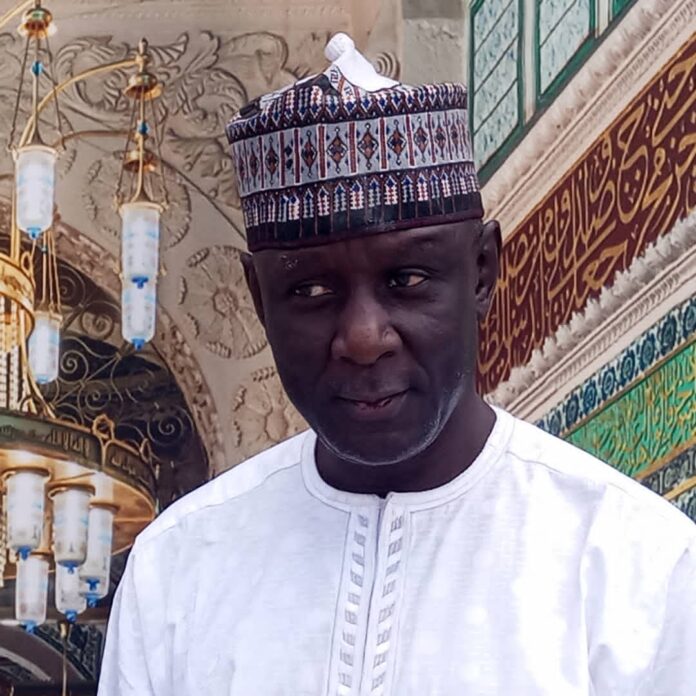By Ibrahim Musa Kallah,
The revival of industries is not just an economic necessity—it is a moral imperative for national renewal, social stability, and shared prosperity. Industrial revitalization holds the power to transform communities, create jobs, and unlock the wealth of nations. In Nigeria, and particularly in the northern region, this conversation is both urgent and timely.
In the past, Northern Nigeria was a powerhouse of industry and productivity. The region was home to bustling factories and vibrant commercial activities that gave hope to millions. During the golden years, cities like Kano, Kaduna, and Funtua were synonymous with industrial strength. Jobs were abundant, and employment opportunities stretched across all skill levels. One could easily secure a job in Kano with nothing more than a primary school certificate.
Kaduna, often described as the industrial heart of Northern Nigeria, hosted some of the nation’s most successful textile companies — United Nigerian Textile, Arewa Textile, Kaduna Textile, and Funtua Textile. These factories operated with the backing of the Northern State Governments and provided thousands of citizens with decent employment. Each of these companies employed over 10,000 workers, sustaining livelihoods, families, and communities.
Today, however, that glorious past has faded into history. The once-busy factories now lie in ruins — their gates locked, their machines silent, and their walls overtaken by rodents and reptiles instead of workers. The collapse of these industries has created a vacuum that has been filled by unemployment, poverty, and social unrest.
It is time, therefore, for decisive action. Government must lead a coordinated effort to bring together key stakeholders in commerce and industry — including policymakers, investors, and international experts — to explore practical strategies for industrial revival. Reviving these factories and industries across Northern Nigeria would not only breathe new life into the economy but also reduce unemployment and elevate the standard of living.
Nigeria is richly endowed with both human and natural resources. Yet, the country’s heavy dependence on crude oil revenue has hindered the growth of its manufacturing sector. We have, for too long, neglected the processing and utilization of our abundant raw materials. Establishing and supporting indigenous companies that can produce locally and export globally is the only sustainable way forward.
Take Katsina State as a case in point. The state is blessed with enormous potential in agriculture and industry. The Cotton Ginnery, the Steel Rolling Mill, and the Funtua Textile Company — once major sources of employment — are all in need of revitalization. Restoring them would not only provide jobs for thousands of young people but also stimulate trade, empower local farmers, and strengthen the entire value chain.
Other states across the North hold similar opportunities. Sokoto can explore leather and tanneries; Zamfara has gold and minerals; Kebbi is rich in rice and fisheries; while Kano remains strategically placed for trade and commerce. With proper policies and strong political will, the North can once again become an industrial hub contributing meaningfully to Nigeria’s GDP.
As the popular Hausa proverb says, “Arziki yana gonar yaro” — “Wealth lies in the youth’s farm.” This saying captures a profound truth: prosperity grows where effort, discipline, and productivity meet. The younger generation must be empowered with opportunities to work, create, and innovate. The revival of industries offers exactly that — a platform for our youth to channel their energy into productive ventures rather than idleness or insecurity.
Developed nations achieved their status through industrialization and trade. From the textile revolution in England to the automobile boom in the United States and the manufacturing rise of China, history has shown that no nation prospers without a strong industrial base. For Nigeria — and particularly Northern Nigeria — the path to progress lies in following this same model: reviving our industries, empowering our citizens, and promoting self-reliance.
This is where leadership plays a crucial role. It takes vision, courage, and consistency to rebuild an industrial economy. President Bola Ahmed Tinubu has repeatedly emphasized economic diversification and industrial development as key pillars of his administration’s Renewed Hope Agenda. His focus on infrastructural development, energy reforms, and ease of doing business are steps in the right direction.
At the state level, Governor Malam Dikko Umar Radda of Katsina has demonstrated exceptional foresight and determination in driving economic transformation. His administration’s commitment to reviving agriculture, promoting entrepreneurship, and attracting investment reflects a genuine passion for progress. Through various empowerment schemes and economic initiatives, Governor Radda is laying a solid foundation for sustainable development in Katsina.
The road to industrial revival will not be easy. It will require patience, capital, and the cooperation of all stakeholders — government, private sector, investors, and the citizens themselves. But the rewards are worth every effort. Revived industries mean more jobs, more revenue, and a stronger, self-reliant economy. They mean dignity for workers, stability for families, and prosperity for the nation.
As Nigeria looks toward the future, one message stands clear: the key to prosperity lies in production. The time to act is now — to reopen our factories, retrain our workforce, and rebuild the economic engines that once powered our great nation. Industrial revival is not just an option; it is the only pathway to lasting growth and shared prosperity.
Ibrahim Musa Kallah wrote from Katsina.




